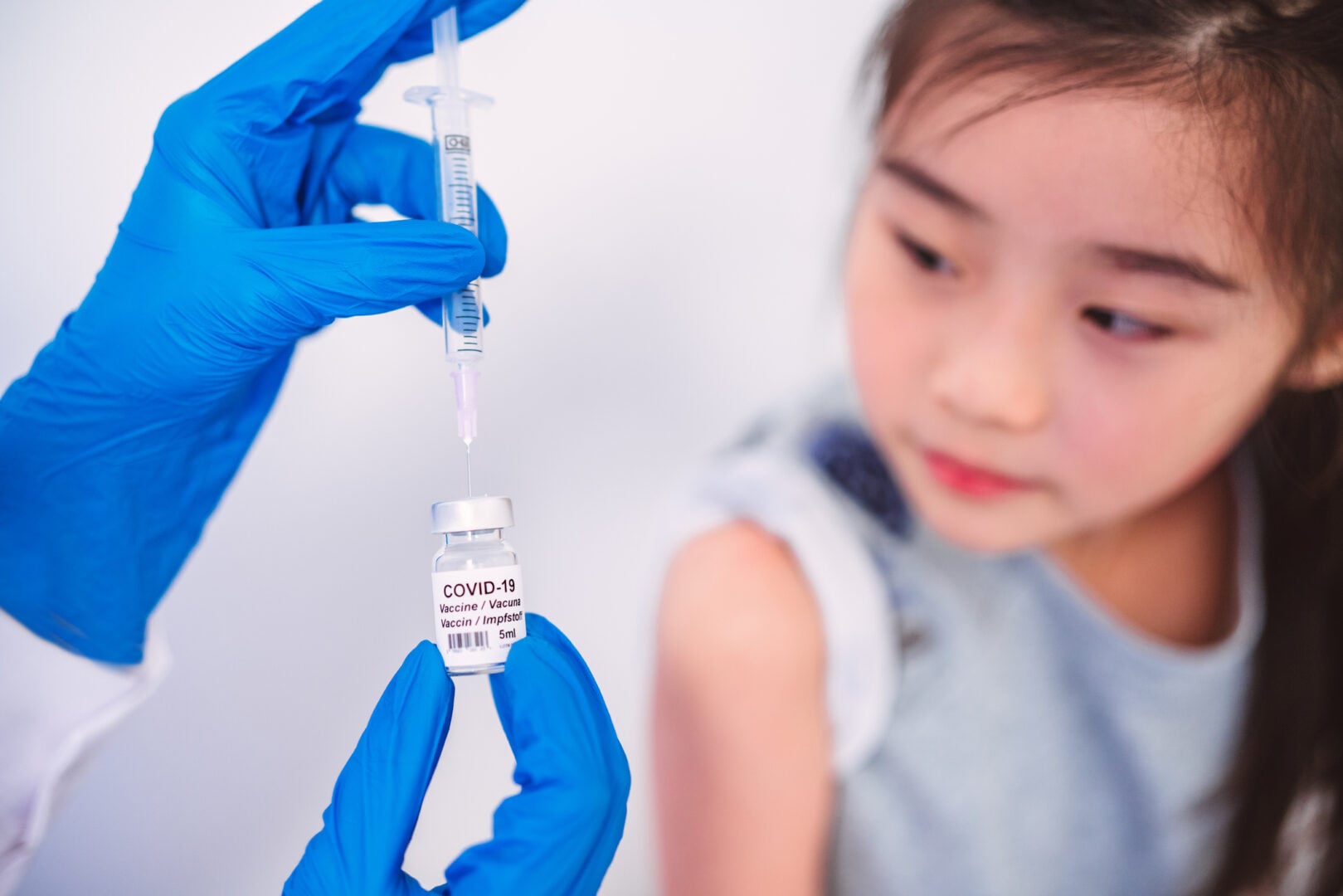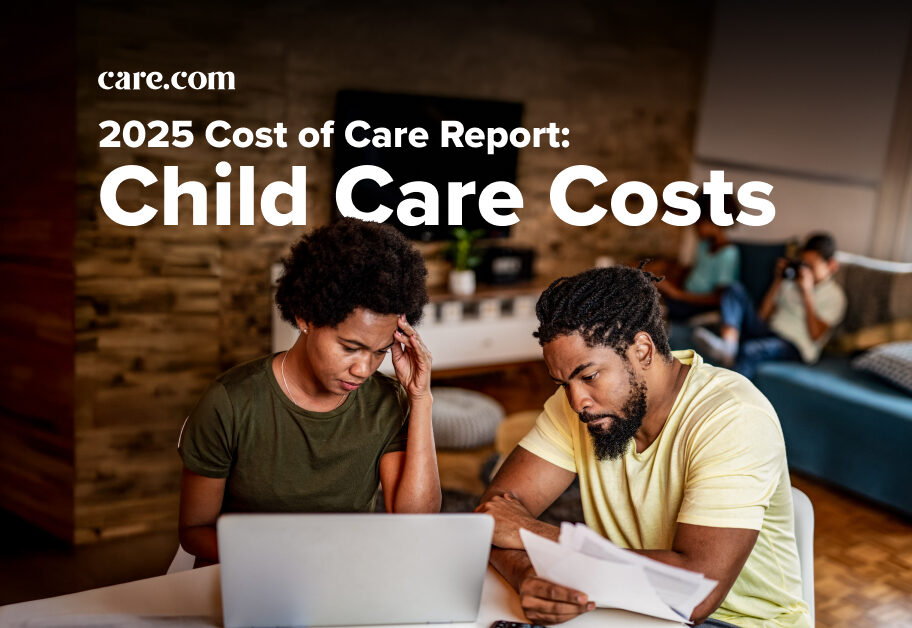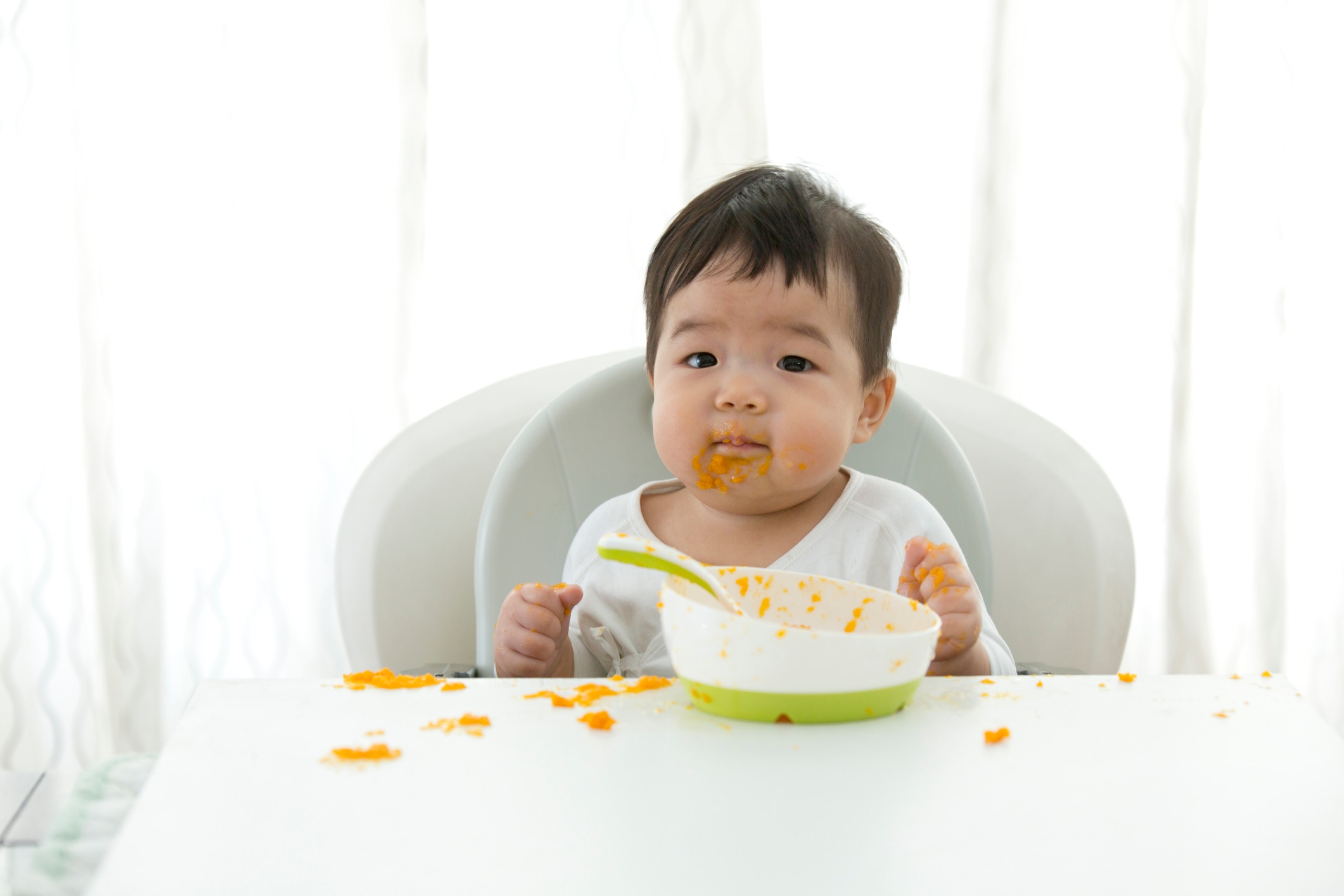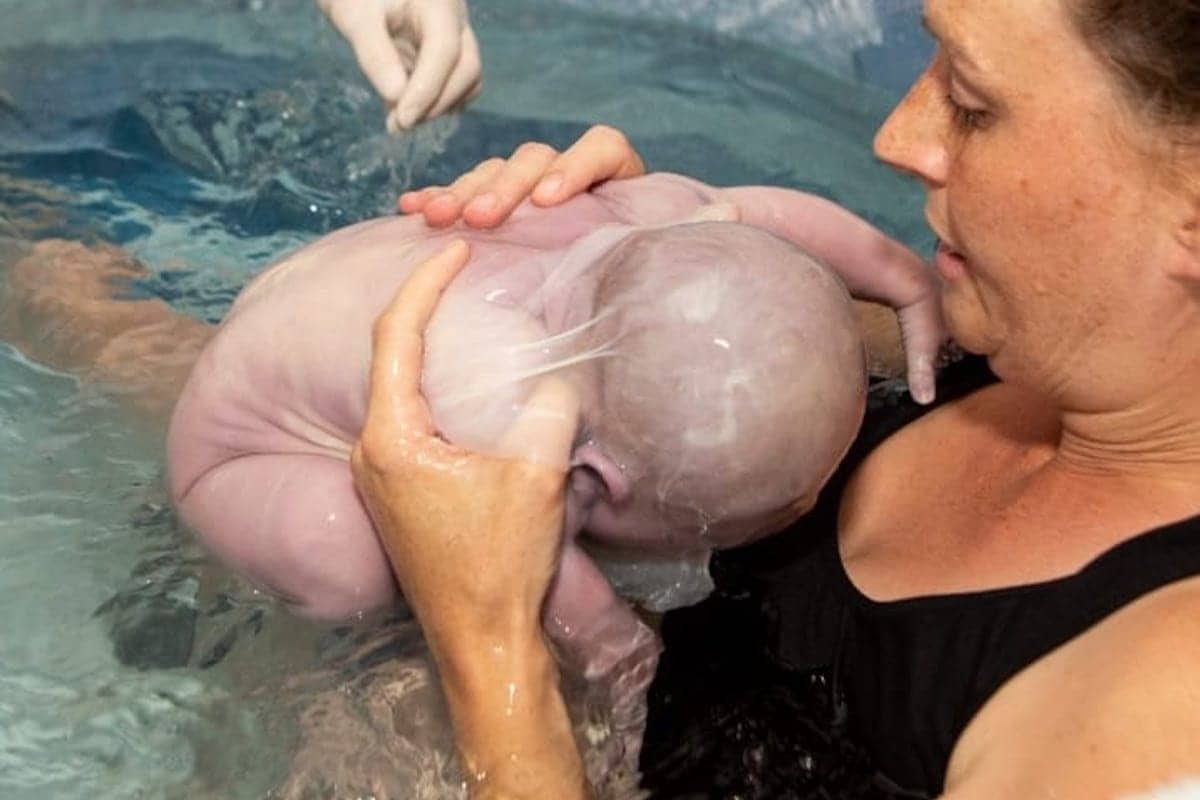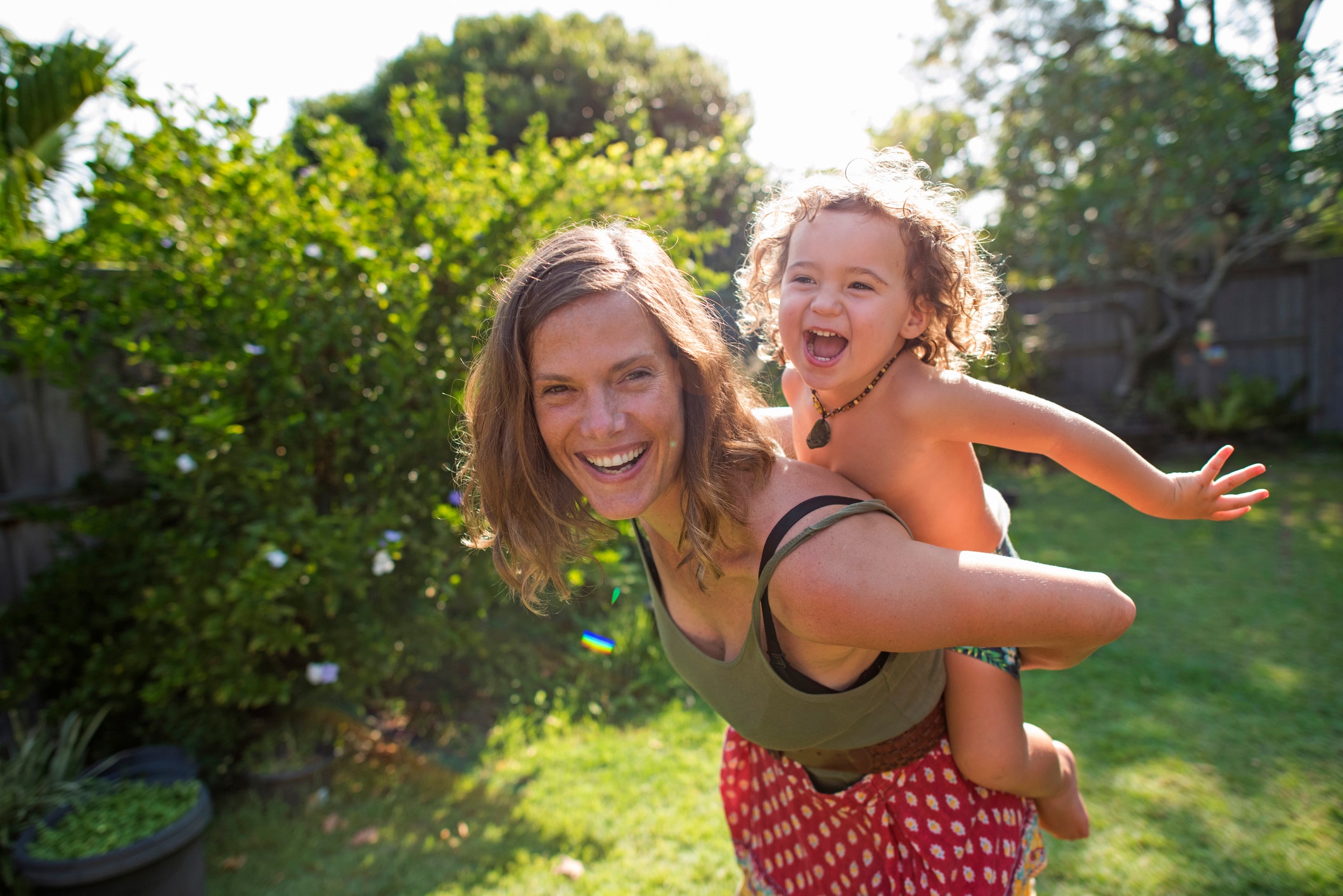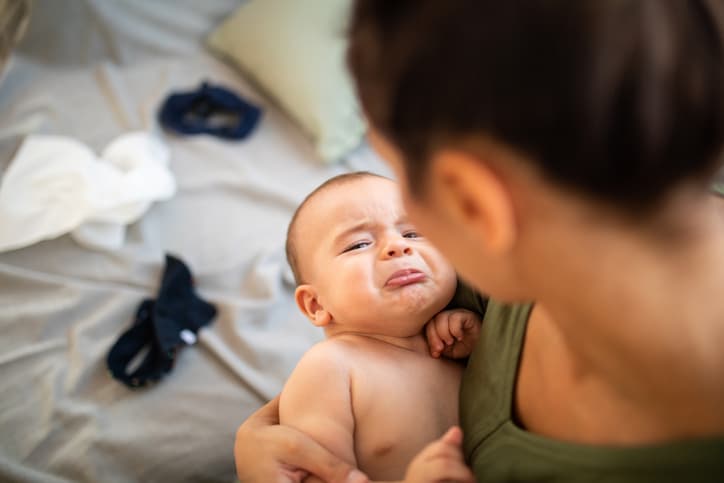The COVID vaccine for kids ages 5-11 is likely just a few weeks away. Among parents, the news that younger children can finally be vaccinated has been met with relief, excitement and a bit of apprehension. Many parents are watching closely to ensure the vaccine is deemed safe by U.S. health agencies before seeking it out for their kids, but a new poll shows a majority of parents say they are likely to get their children vaccinated against COVID-19.
The results are from a survey of more than 1,000 parents with kids ages 5-18, which was performed by the COVID-19 Vaccine Education and Equity Project and the National Association of School Nurses. Of those surveyed, two-thirds of those with 5-11 year olds plan to get their children vaccinated once they are eligible for a shot, and 60% of those with children ages 5-18 also say they support COVID vaccine mandates in schools.
The survey also hints that interest in the vaccine is linked to parents’ own vaccine status. According to a press release, parents who participated in the survey were more likely to want to get their kids vaccinated if they are vaccinated themselves, and 78% of vaccinated parents support vaccine mandates in schools.
Despite large numbers of parents expressing interest in vaccinating their kids against COVID-19, that leaves about a third of parents who still have hesitations about getting the shot.
Among the surveyed parents, those with children ages 5-11 who feel unsure about vaccination ranked the following as their top concerns:
- 63% cite concerns about potential side effects.
- 57% share fears about potential long-term effects on kids’ health and/or fertility.
- 54% worry the vaccines were developed too quickly.
- 45% state they’re kids are healthy and active.
- 42% say they prefer to wait for more information before making a decision.
“While we’re encouraged to see that a majority of parents intend to vaccinate their children against COVID-19 once they are eligible, there is clearly more work to be done to help address parents’ questions and ease concerns about the vaccines,” Beth Battaglino, a registered nurse and the co-convener of the COVID-19 Vaccine Education and Equity Project, said in a statement.
On Twitter, parents have been open about their feelings regarding COVID vaccines, including voicing their excitement and their potential concerns. One parent writes, “Chatted with 3 other moms. All of us vaccinated. All have little kids with regular shots. All hesitant about the COVID vaccine for [ages] 5-11 and considering homeschool if mandated.”
Another parent writes, “Three new Covid cases at our school. I am trying not to be anxious but, gosh, I wish Pfizer and the FDA would hurry up with the vaccines for kids under 12.”
Experts have also taken to Twitter to combat misinformation and assuage parents’ concerns. Dr. Faheem Younus, an infectious disease expert with the University of Maryland hospital system, says he plans to get his kids vaccinated to prevent severe COVID infection, avoid the risk of long COVID and for several other reasons.
The U.S. Food and Drug Administration (FDA) won’t make a decision on the authorization of COVID vaccines for kids until October 26, but Pfizer and BioNTech report their trials show a “robust antibody response” from the lower dose shots for children, as well as a safety profile that is “consistent with those we have observed with our vaccine in other older populations at a higher dose.”
Though parents aren’t unanimous in their decision to get kids vaccinated, 77% of parents surveyed say they are worried about their kids catching the virus. This is especially true for parents of color, who have been disproportionately impacted by COVID. Nearly half of Black parents and 47% of Hispanic parents say they are “very worried” about their children getting COVID, compared with 33% of white parents.
Currently, children account for about a quarter of all new COVID cases, with over 1.1 million new child cases diagnosed over the past six weeks. For many worried parents, an authorized COVID vaccine for kids could offer another layer of added protection and an important step in the ongoing fight against the pandemic.
